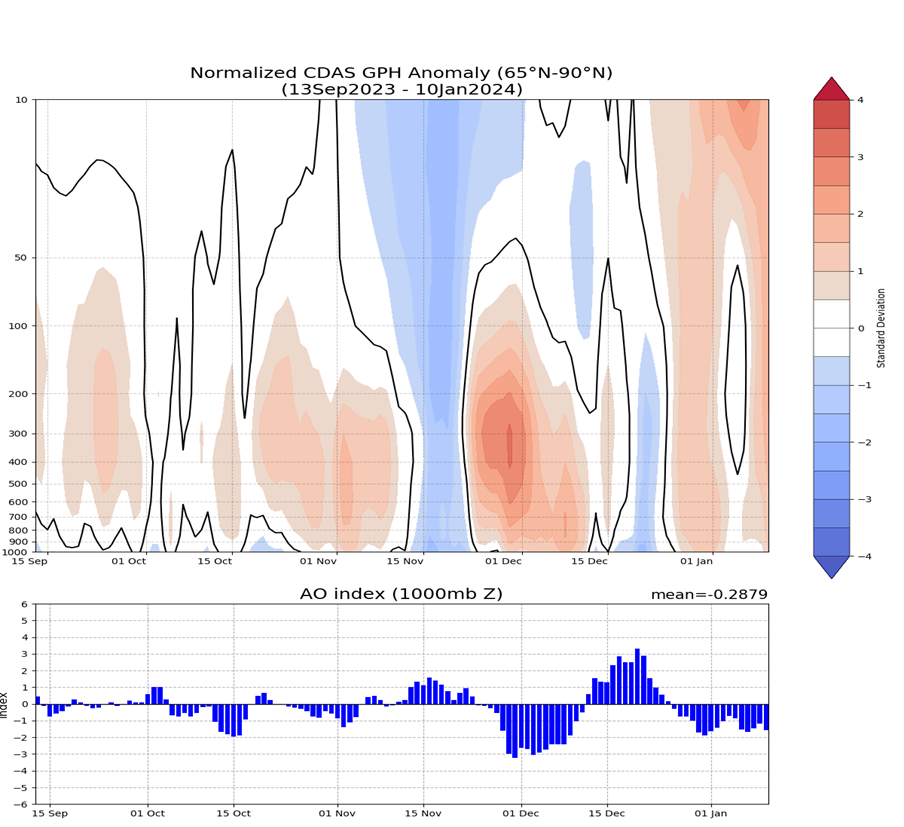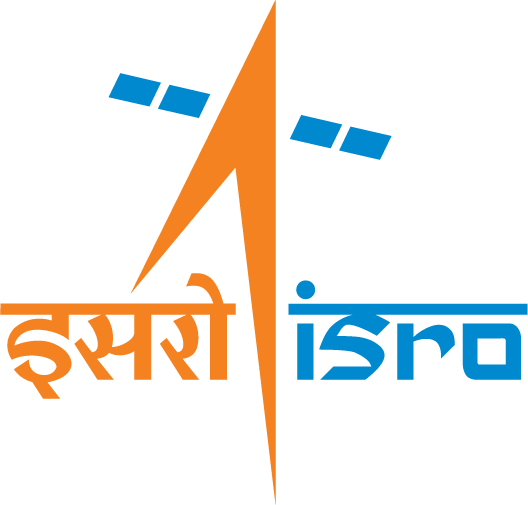Authors: Sreyasi Biswas, Charu Singh, and Anjana V S
The January of 2024 saw some unusual weather in the Indo-Gangetic belt, including the Northern Indian states of Uttarakhand, and Himachal Pradesh. Unlike any other year, a fairly large number of cold to severe cold waves hit these regions. Dense fog engulfed the cities typically from 5 to 8 in the morning, which caused massive disruption to the daily activities. The prevailing fog limited the amount of sunlight reaching the ground which triggered a very low temperature. Notably, the Himalayan region was snow-starved and the states saw an abnormally low precipitation, with a deviation of 89% form the normal between 4th to 10th of January 2024 (IMD reports).
This abnormal winter manifested due to several weather elements working in collaboration. Most notably were the dominance of Arctic Oscillation (AO), and North Atlantic Oscillation (NAO). Both AO and NAO were in their negative phases . Such conditions resulted in the Stratospheric Polar Vortex (SPV) over the Arctic to weaken (Liang et al. 2022) and meander far into the lower latitudes, reaching as far as the North of India This triggered a very low temperature and resulted in severe cold waves. A positive anomaly of geopotential height indicated a weak Polar Vortex (PV) . This also weakened the Western Disturbances (WDs) (Hunt & Zaz, 2023) that is majorly responsible for rainfall in North India during winters. WDs carry moisture from the Caspian Sea towards the Himalaya. There, upon colliding with the mountains shed all its moisture in form of rain and snow. The SPV however gained strength again which then manifested in the form of rainfall starting February.

Figure (a) Daily geopotential height anomaly at 17 pressure levels. Blue (red) colour indicates strong (weak) polar vortex, (b) AO index that coincides with the geopotential height anomaly. Source: CPC – CDAS NOAA
References:
- Hunt, Kieran & Nazir Zaz, Sumira. (2022). Linking the North Atlantic Oscillation to winter precipitation over the Western Himalaya through disturbances of the subtropical jet. Climate Dynamics. 60. 10.1007/s00382-022-06450-7
- Liang, Z., Rao, J., Guo, D. et al. Northern winter stratospheric polar vortex regimes and their possible influence on the extratropical troposphere. Clim Dyn 60, 3167–3186 (2023). https://doi.org/10.1007/s00382-022-06494-9



